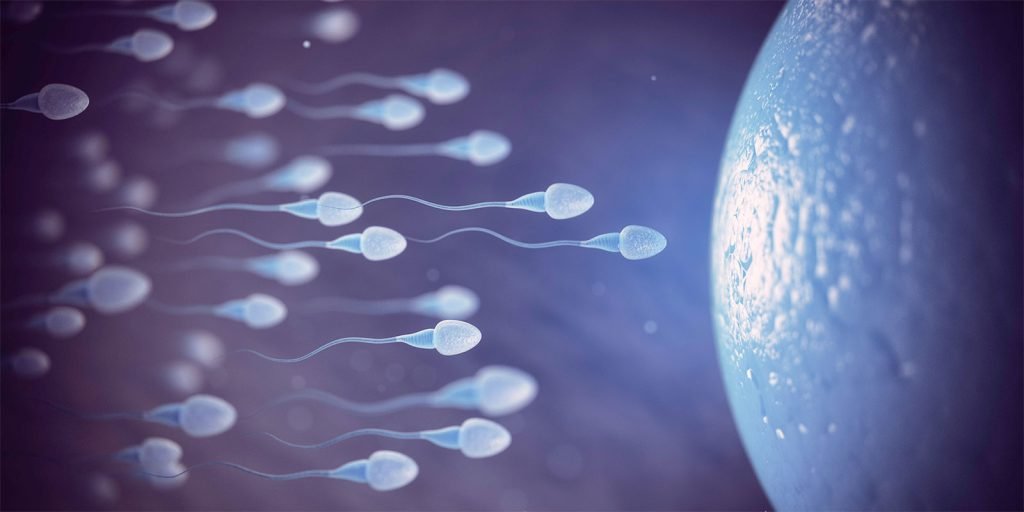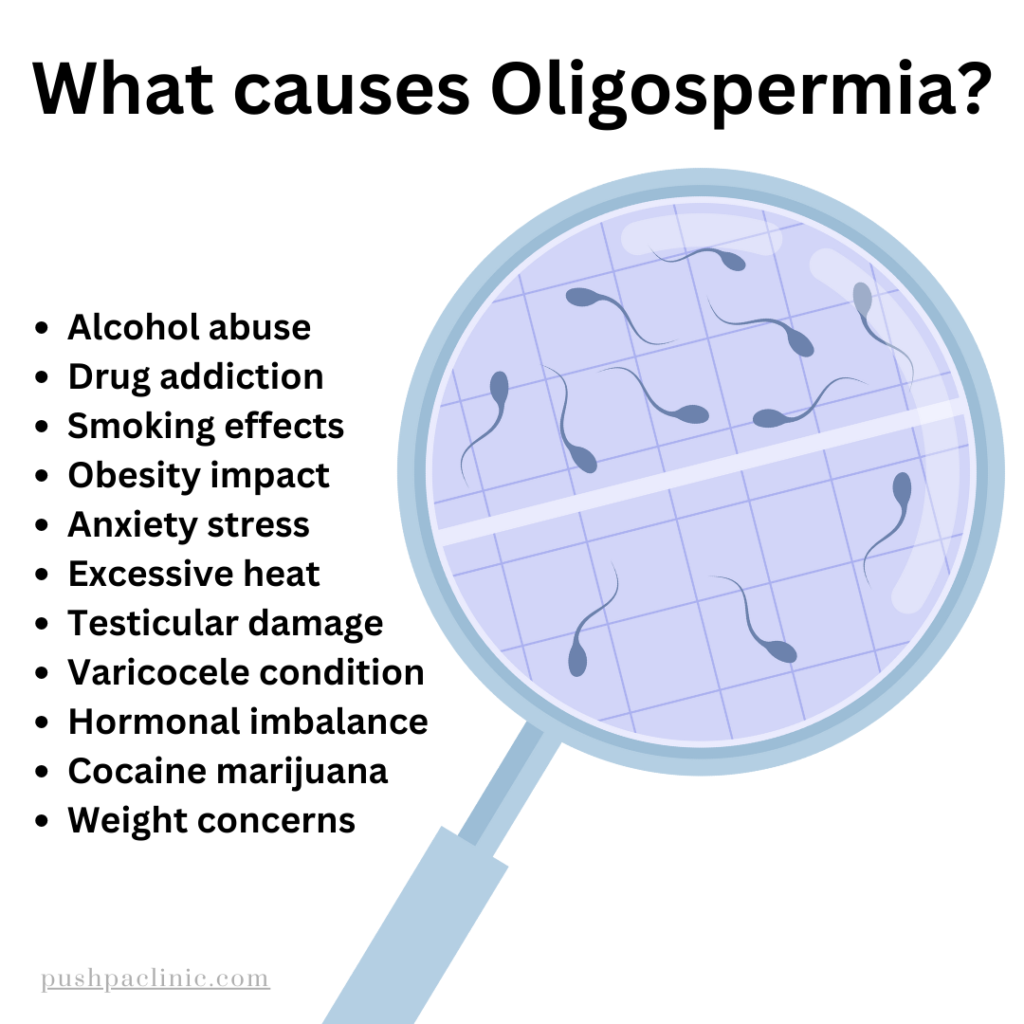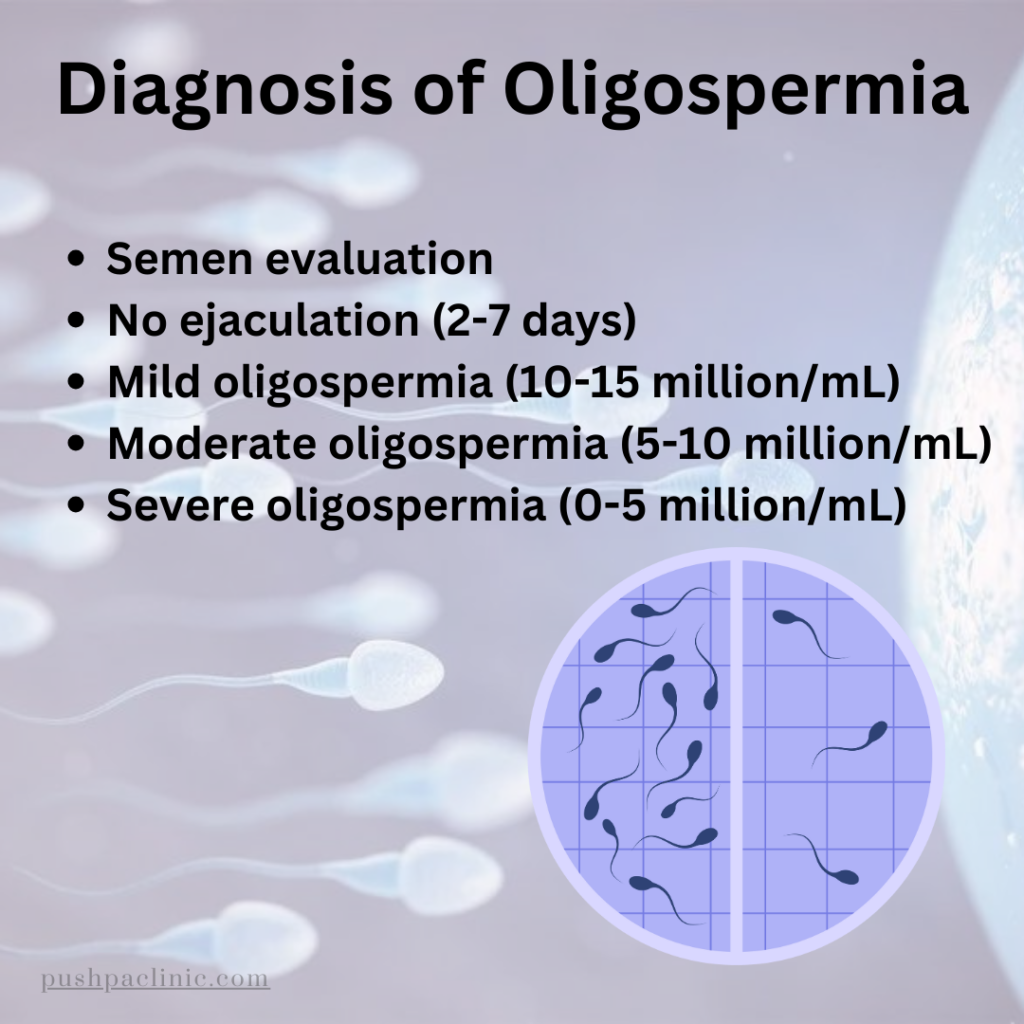Defining Oligospermia
Oligospermia can be identified by low counts of sperm and semen quantity. The WHO describes oligospermia as less than 15 million/mL This can result in decreased fertility and challenges conceiving babies. Oligospermia is seen in 8% of men who report with infertility. Men with serious oligospermia (less than 5 million/mL) have an elevated risk of genetic conditions. Oligospermia often has little effect on sexual activity. Men may be unaware they have this unless they are experiencing difficulty conceiving with a partner. After a semen examination, oligospermia was found as having a low sperm count. Oligospermia constitutes one of the most common reasons for infertility.

What causes Oligospermia?
Causes of decreased sperm count include alcohol and drug addiction, cigarette smoking, being overweight, anxiety, stress, excessive heat, and testicular damage. Risk variables for infertility include infections, genetic conditions, chronic illnesses, treatment for cancer, drug use, prior surgery (e.g. vasectomy, pelvic or abdominal surgery), and previous experiences of undeveloped testicles. Let us now discuss some factors in detail:
- Varicocele: Enlarged veins in an adult male's genitals could restrict the flow of blood to the testicles. This could lead to the inside temperature in the testicles to rise. Any rise in temperature has a negative impact on the production of sperm.
- Hormonal problems: The brain and testicles generate numerous hormones that control ejaculation and the generation of sperm. An imbalance in one or more of these hormones could decrease the amount of sperm produced.
- Alcohol and drug abuse: Certain drugs, such as cocaine and marijuana, can lower sperm counts. Drinking too much may produce the exact same result. Men who consume tobacco may have lower sperm counts than those who don't
- Weight-related issues: Being overweight or obese impacts your chances of suffering from low sperm counts in multiple ways. Overweight individuals may significantly lower the amount of sperm your body can produce. Weight concerns might also interfere with hormone synthesis.

Diagnosis of Oligospermia
Semen evaluation is an initial test performed on an adult couple who complains of unexplained infertility. The specimen of semen must be collected after between two and seven days of no ejaculation.
A diagnosis of oligospermia is made for anything that falls below the limit (ranging from 5 million per milliliter to 15 million sperm per milliliter)
- Mild oligospermia is established when sperm count ranges from 10 to 15 million sperm per milliliter.
- Moderate oligospermia is defined as 5-10 million sperm/mL
- Severe oligospermia is diagnosed when sperm counts decrease between 0 and 5 million per milliliter.

Remedies to Treat Oligospermia
Changes in way of living: Sperm counts may increase with weight loss and maintenance of a healthy weight. Moreover, it can lower your chance of developing several other illnesses. To increase the amount of sperm, give up alcohol, tobacco, and drug use.
Hormone corrections: Certain hormones may be responsible for this male problem. Hence addressing them with a range of drugs, injections, and modifications to your diet can help hormones return to a healthy state. Sperm counts may increase when hormone levels return to normal.
Ayurvedic treatment: Tribulus Power comprises natural extract of Gokshura, which increases testosterone levels and improves sexual organ function. Promoting healthy sperm effectively treats oligospermia.

If Oligospermia is interfering with an individual’s personal sexual life, they must visit a doctor for accurate diagnosis and thereby course of treatment.This problem can lead to difficulty in having babies in future, which may affect your mental health as well. Therefore, it is very important to understand the condition, notice the symptoms and go to a professional to seek help, when there is still time left to rectify the problem. Always remember, this problem can be rectified to a large extent by lifestyle modifications and certain medications.
